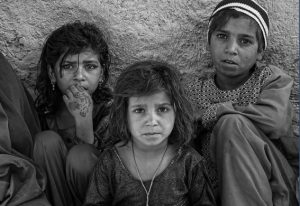Is the UN set to pull out of Afghanistan?
The United Nations is deliberating whether to end it operations in Afghanistan as working under the Taliban becomes increasingly difficult.
Following the Taliban’s move to ban local women from working for the global body, UN officials are said to be considering taking the “heartbreaking” decision to completely pull the UN out of the strife-torn country.
The UN currently employs some 600 Afghan women, along with 2,700 Afghan men. All 3,300 have stayed home since April 12.
 The UN mission in Afghanistan is conducting an “operational review” until May 5, according to a recent statement which also said UN officials were “planning for all possible outcomes.”
The UN mission in Afghanistan is conducting an “operational review” until May 5, according to a recent statement which also said UN officials were “planning for all possible outcomes.”
This amounts to a grim dilemma and probably the worst in a long line of difficult decisions the organisation has had to make in Afghanistan.
UN Secretary-General António Guterres said in a recent statement, the Taliban’s move to ban Afghan women from working with the UN was a “violation of the inalienable fundamental human rights of women”.
He also emphasized how female staff members are essential for UN operations in the country, “including in the delivery of life-saving assistance”.
Maintaining the UN mission in Afghanistan and trying to work under discriminatory rules would look to many people in civil society as towing the line with the Taliban’s extremist ideology.
But pulling out of Afghanistan would have significant humanitarian consequences.
Almost 20 million people – or almost half the population – face what the World Food Program calls “acute food insecurity” while six million face “emergency-level food insecurity.”
Afghanistan is currently home to one of the world’s largest aid operations.
The Taliban’s restrictions on women have been impeding delivery of life-saving humanitarian assistance since their takeover in 2021, but observers say things will get even worse if the UN exits.
And the potential withdrawal comes amid predictions that the departure of the UN and other agencies could affect women and children most.
A report from the International Crisis Group in February said women and girls often received the smallest share of food in Afghan families and were more vulnerable to malnutrition and disease.
The agency also said it feared for the long-term impact of aid groups and others withdrawing.
“If they leave, international actors may have a hard time coming back to Afghanistan in the future,” it said.
The UN is not the only organisation confronting the dilemma. Aid agencies delivering health and humanitarian assistance have been hit hard by an earlier Taliban edict banning women from working at non-governmental organisations.
Melbourne-based Afghan community leader Mohammed Reza said a UN exit from his homeland would be a catastrophe.
“If the UN pulls out of Afghanistan the result will be deaths and increased poverty,” he said.
“We are also seeing more than a million children under 5, who are especially at risk of mortality when deprived of food, are suffering prolonged acute malnutrition.
“The crisis has been made worse by the war in Ukraine which is driving rising food prices.
“It’s a perfect storm of problems in Afghanistan because we are also seeing crop failures, international aid drying up, declining currency values, high unemployment, and export restrictions on key products,” Mr Reza said.












